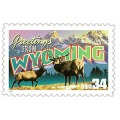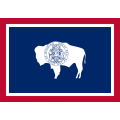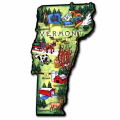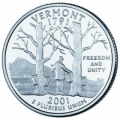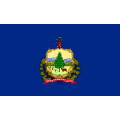Public colleges and universities operate under the supervision of the state government, and they rely heavily upon state funding. This often translates to significantly lower tuition, particularly for state residents. Wyoming’s nursing students have several high-quality public schools from which to choose.
Overview of nursing programs
Latest articles
More than 30 percent of Wyoming’s population will be over the age of 60 by 2030. This illustrates the pressing need to expand the state’s healthcare workforce. Nurses form the largest group of healthcare professionals in the state, and they are in high demand. Wyoming is home to over 3,200 certified nursing assistants (CNAs), 700 licensed practical nurses (LPNs), and 4,500 registered nurses (RNs). The state’s nursing workforce will grow at a significantly faster rate than overall employment for the near future.
Overview of nursing roles and programs
For many registered nurses (RNs), the next logical step after completing a bachelor of science in nursing (BSN) program is to earn an advanced degree. A master of science in nursing (MSN) degree provides existing RNs a superb opportunity to enhance their careers and qualify for high-paying specialist roles.
Overview of MSN programs
The bachelor of science in nursing (BSN) is a popular degree path for Vermont’s aspiring registered nurses (RNs). Several of the state’s colleges and universities offer an accredited BSN program. A bachelor’s degree provides its students with extensive medical training and practical skills. Graduates are prepared to work in managerial and administrative positions at hospitals, medical centers, and physicians’ offices.
Overview of bachelor’s degree programs
The associate’s degree in nursing (ADN) is a flexible degree program for those seeking a career as a registered nurse (RN). With just a two-year commitment, students can complete the ADN in a much shorter amount of time than a corresponding bachelor of science in nursing (BSN) degree program.
Overview of the associate’s degree in nursing
Students seeking a rapid and affordable path into nursing should consider a licensed practical nursing (LPN) certificate. This short yet comprehensive training program allows aspiring nurses to launch a secure and promising career.
Overview of licensed practical nursing
While attending nursing school can be costly, there are numerous ways students can manage the costs of a quality education. It is particularly important to remember that tuition, the largest cost component of nursing education, varies significantly according to one’s choice of school and program.
Factors determining the cost of nursing education
Vermont is home to a select number of private nursing schools. These institutions provide competitive and high-quality education that enables students to find rapid employment upon graduation.
Overview of private nursing schools
Because healthcare is such a critical service, Vermont offers a variety of training programs for aspiring nurses. Available options range from certified nursing assistant (CNA) certificate programs, which require just a few months of training, to graduate-level degree programs for advanced practice registered nurses (APRNs). Fortunately, many of these programs are offered at lower cost through public schools.
Overview of public nursing schools
Vermont offers a wide variety of programs for nursing students. The type of program a student chooses will depend on her nursing role. The most common nursing roles are certified nursing assistant (CNA), licensed practical nurse (LPN), and registered nurse (RN).
CNA programs and career outlook

